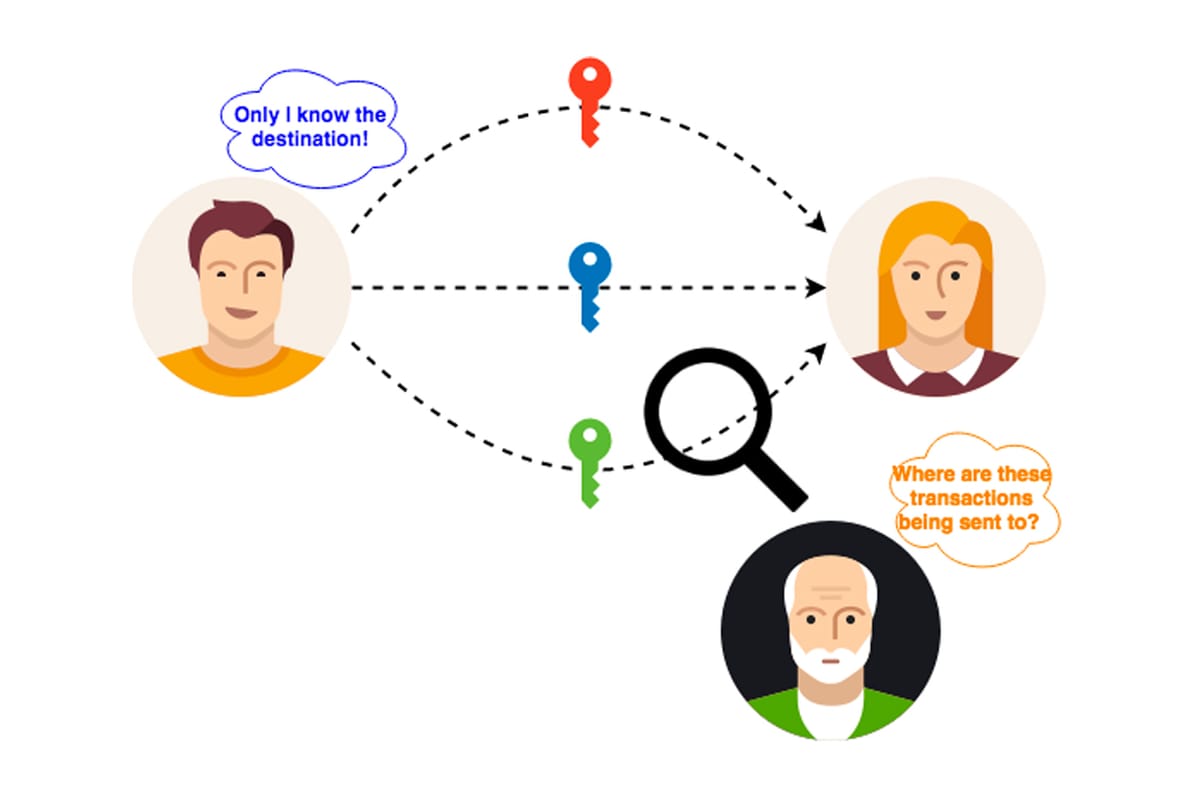
Ethereum, one of the earliest and most sophisticated players in the crypto industry, is also the driver of innovations and trends in the crypto industry. Recently, the project’s founder, Vitalik Buterin raised in his blog the issue of blockchain privacy, stating that this was perhaps the most important challenge facing Ethereum at the moment.
The problem is that with a normal transaction in a blockchain, a lot of information about the user remains publicly available. This information can be analyzed using various tools (such as Chainalysis) and used, among other things, to reveal more of the user's private data. Tools like blockchain mixers are risky and also not effective in certain cases - for example when “hiding” transactions for unique digital assets such as NFTs.
So, stealth address system is proposed to solve this issue. In layman's terms, the stealth address is a third, neutral address that transacting parties create for each transaction and then send digital assets through that account without revealing their own addresses. According to Vitalik Buterin, the idea was proposed for Bitcoin back in 2014 and the solution was there in the form of a cryptographic algorithm.
Nevertheless, for actual implementation, there are further technical details that need to be addressed. One of them, highlighted in Vitalik’s article is the problem of fees: stealth addresses don’t have balances to pay for gas fees. Vitalik also talks about the “social recovery” - a concept allowing people who have lost access to their accounts to be able to restore it, by using their connections. In case of stealth addresses, such a solution would be even more difficult to implement.
The issue of privacy is not new and it is not specific to Ethereum. Monero, a very early Bitcoin fork, focused on this issue. The Monero cryptocurrency is actively engaged in privacy. Monero was launched in 2014 (under the name BitMonero). This cryptocurrency is built on open-source code and was created in order to provide the user maximum privacy. One of the main features of this cryptocurrency is its stealth addresses system. In addition, Monero has the ring signature transaction obfuscation mechanism which provides privacy.
Other projects introduced similar solutions for Stealth Addresses. Cosmos Blockchain, for example, uses separate network, consensus and application layers to ensure privacy. Furthermore, in the Cosmos Blockchain, interchain security and interchain accounts are used. In the Solana blockchain, privacy is ensured through projects such as Otter Cash, Light Protocol and others. Cardano is going to use Midnight sidechain (and native token Dust) with zero-knowledge proof smart contracts onboard to provide more privacy.
In Vitalik’s view, for privacy-related reasons, wallets should start moving toward a more “natively multi-address model” (eg. creating a new address for each application and person you interact). However few people follow these basic recommendations, revealing not only their own but also their counterparts’ info. Stealth addresses, if implemented in a user friendly way may change all of this. We will continue our observations.

